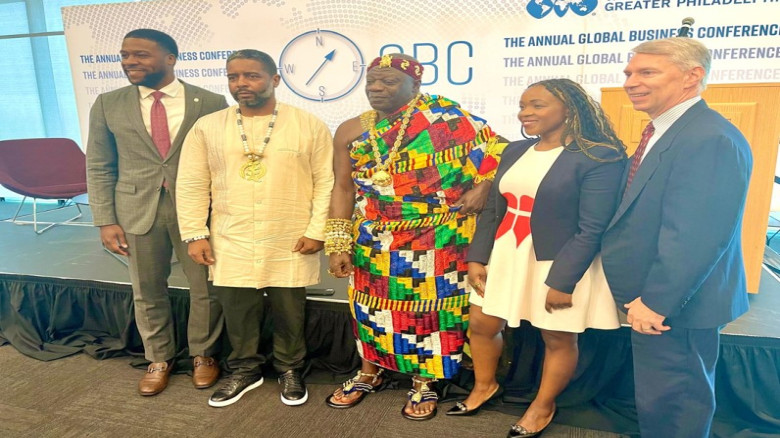Unexpected change in Opuni’s appeals panel by Chief Justice sparks murmurs in Ghana’s Supreme Court
The Supreme Court witnessed a surprising turn of events as Chief Justice Gertrude Sackey Torkornoo made unexpected changes to the panel handling an appeal by former COCOBOD Chief Executive Dr Stephen Kwabena Opuni against Article 157(3) of the 1992 Constitution.
The panel’s alteration on the day of judgement left many legal experts, including Dr Opuni’s counsel, Lawyer Samuel Codjoe, bewildered.
The Opuni team and the Attorney General had made their arguments before an earlier panel and submitted their written submissions.
Notably, Chief Justice Torkornoo not only altered the panel but also assumed the role of its new president.
The stunned legal luminaries and spectators in the packed-to-capacity courtroom were heard, albeit inaudible, murmuring in disbelief after Counsel for Dr Opuni revealed in court that the panel now sitting on the case was different from the panel they appeared before many months ago.
Recalling the history of the case, Justice Kwasi Anokye Gyimah initiated a de novo trial upon taking over from retired Supreme Court judge Justice Clemence Honyenuga before his transfer in April 2023.
Dissatisfied with Justice Anokye’s ruling, Attorney General Godfred Yeboah Dame swiftly sought redress from the Court of Appeal.
The case was hurriedly heard, and the Attorney General secured a favourable ruling as the three-member panel, on July 3, 2023, quashed the decision of the High Court, and allowed for the adoption of the previous proceedings.
Dr Opuni’s counsel, who felt the judges of the Appeals Court “committed an error of law” in their judgement, also filed an interlocutory appeal at the Supreme Court on July 7, 2023. Several months after the appeal was filed, parties were made to appear for a hearing before the Supreme Court on January 17, 2024.
During this session, a five-member panel headed by Justice Mariama Owusu instructed both parties to submit written arguments within specific timeframes. The four other Supreme Court judges were Justice Yaw Darko Asare, Justice Emmanuel Yonny Kulendi, Justice George Kingsley Koomson, and Justice Henry A. Kwofie.
The five-member panel ordered the parties to file written submissions within twenty-one (21) days. The Attorney General’s Department was to file its response within twenty-one (21) days of receipt of the appellant’s submissions, after which the appellant had seven (7) days within which to file a reply to the submissions of the prosecution.
Following this directive, Dr Opuni and the Attorney General submitted their arguments as instructed.
However, despite numerous follow-ups, Dr Opuni’s legal representatives received notice of the next hearing only on May 2, 2024, significantly delaying the process compared to previous proceedings.
On May 8, 2024, Dr Opuni and his legal team appeared before the court, expecting to receive a judgment date. To their surprise, they found a newly constituted panel, chaired by Chief Justice Torkornoo, with only two justices retained from the previous panel.
Lawyer Codjoe immediately objected to this arrangement, citing Article 157(3) of the 1992 Constitution, which stipulates that a judge cannot withdraw from a case until judgment is delivered, especially after hearing arguments.
He felt his client was being treated unfairly and objected to the re-composition of the panel.
“As soon as we filed our written submission, we were ordered to appear before the panel. As soon as we filed, the panel heard us. In so far as the panel ordered us to appear, it constituted a hearing,” Counsel asserted.
He referred to Article 157(3) of the 1992 Constitution to buttress his objection.
Article 157(3) of the 1992 Constitution stipulates: “Without prejudice to clause (2) of this article, no person sitting in a Superior Court for the determination of any cause or matter shall, having heard the arguments of the parties to that cause or matter and before judgment is delivered, withdraw as a member of the court or tribunal, or as a member of panel determining that cause or matter, nor shall that person become functus officio in respect of that cause or matter, until judgment is delivered.”
However, the Attorney General argued against this objection, asserting that no formal hearing had occurred despite acknowledging that hearings could be oral or written.
The objection was eventually overruled by Chief Justice Torkornoo and the others, saying that the case wasn’t ripe for hearing when the previous panel instructed written submissions. Consequently, the case was adjourned for judgment on June 19, 2024.
Legal analysts have raised concerns about the fairness of the Chief Justice’s actions, especially considering that the judgment will rely solely on written submissions prompted by the previous panel’s directive. This discrepancy has led to questions regarding the nature of the previous panel’s instructions, if not considered a form of hearing.
In light of these developments, some question whether Dr Opuni is being treated differently under the law.
Following Justice Clemence Jackson Honyenuga’s retirement in 2018, the Chief Justice reassigned the case to another judge.
On March 30, 2023, the court reconstituted at the High Court, where the Attorney General appealed to adopt previous proceedings, a request vehemently opposed by the accused’s counsel.
Consequently, both parties were directed to submit written arguments.
On April 4, 2023, Justice Kwasi Anokye Gyimah ruled for a de novo trial, considering various factors, including complaints about the trial’s fairness.
Dissatisfied, the Attorney General appealed to the Court of Appeal, which ruled in favour of adopting previous proceedings. Dr Opuni subsequently appealed to the Supreme Court to challenge this ruling.
Godfred Yeboah Dame, the Attorney General, advocated for Parliament to approve a bill allowing judges discretion to adopt proceedings in criminal trials. This stance aligns with previous efforts to overturn decisions, barring certain judges from specific cases.
In 2023, Justice Dotse of the Supreme Court highlighted the need for reforms in criminal trial procedures to expedite corruption-related cases, suggesting a review of the practice of starting trials de novo.
The trial involves Dr Stephen Opuni, businessman Seidu Agongo, and Agricult Ghana Limited. They face 27 charges, including defrauding by false pretences and willfully causing financial loss to the state.
Source: theheraldghana.com









Leave A Comment